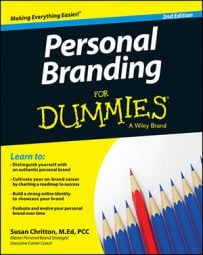On the Internet, your reputation often precedes you. There are many positive attributes of the Internet to use in building your personal brand, but what happens when something dreadful is written about you? The scary thing about the Internet is that it’s very difficult to get rid of something after it’s been posted.
Reputation management is a moving target and often out of your control, especially if someone publishes something about you that is less than flattering. It becomes more complicated when your digital dirt is true.
Many companies conduct social media background checks and are legally allowed to keep the records for seven years. Here are some of the things that they look for in a background check.
Compromising pictures of you, including inappropriate sexually explicit pictures
Offensive language
Racial slurs or discriminatory posts
Illegal activities, including drugs or excessive alcohol abuse
Posts that badmouth previous employers
Discrepancies in your work history or evidence of mistruths
You need to minimize your digital dirt. To do so, keep activity high with sites that you can control so that they show up on page one of your Google search. The more active you are online, the more it raises your search results.
People often don’t look beyond two or three pages of search results, so by taking the offensive and getting a lot of content on the Internet, a search of your name will show your positive sites first.
Some of the sites that often show up on page one are these:
A blog or website with your domain name
Your Google profile
Your LinkedIn profile
Twitter posts
Your Facebook profile
Google Plus
Your Vizibility.com QR code profile
Comments you’ve made on popular blog sites
Be cautious about what you post online. On social networking sites, establish your privacy settings to avoid letting everyone see everything about you. Limit the amount of personal information posted about you online. Delete any unwanted or inappropriate comments that someone makes on one of your personal sites.
Remove your name on photos where you have been tagged and may not want to be identified. (This is especially true of pictures taken at parties where you may have had one too many drinks — or even appear that you did.)
Engage a few Internet tracking tools to follow what is showing up about you online. Continually check all your sites, and periodically do a Google search on yourself to see what shows up. Create a Google Alert that communicates when you’re being searched or when new content is added about you.
Addictomatic is a site that allows you to view online references about yourself across multiple platforms at the same time. These are just two examples of sites to help you stay on top of your online reputation.

